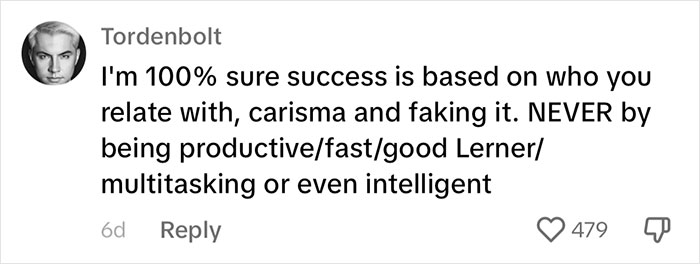Let’s be honest – most of us have made our resume look a little bit better than it is in reality. And I don’t mean fake job experience, but some skills that our desired position requires. However, what we write on a resume is one thing; the other thing is to actually prove that you are capable of doing this job and not just saying that you can do it. Or there’s another option, ‘fake it till you make it’, but sometimes faking it lasts longer than expected.
On that note, a person opened up that they are not good at their job at all, but have managed to get 7 promotions in a decade and make it to the top by simply exaggerating, bluffing and faking it.
More info: TikTok
‘Fake it till you make it’ is a good motivational quote, but that part where you finally make it should arrive later

Image credits: krakenimages (not the actual photo)
This person opens up that over 10 years ago, they got a job in the tech industry, because a family friend worked at the company and specifically vouched for them
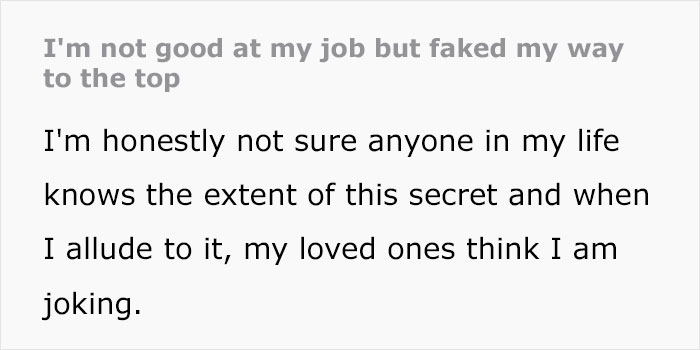
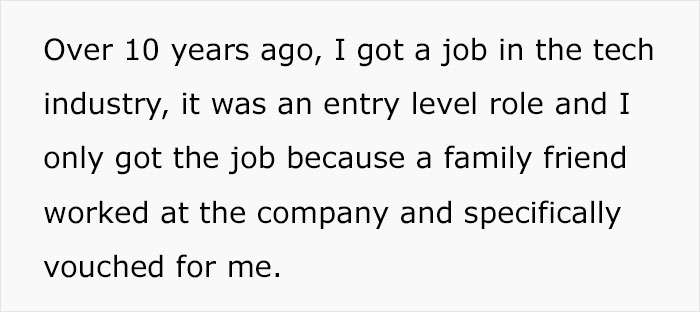
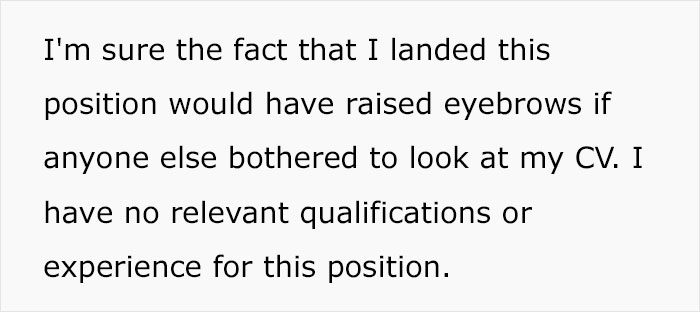
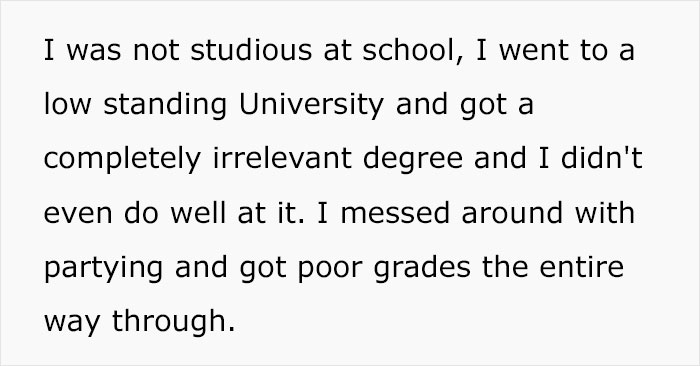

Image credits: Jason Goodman (not the actual photo)
However, over this time, they have been promoted 7 times and are now head of a department despite saying that they have zero knowledge about business and are basically clueless
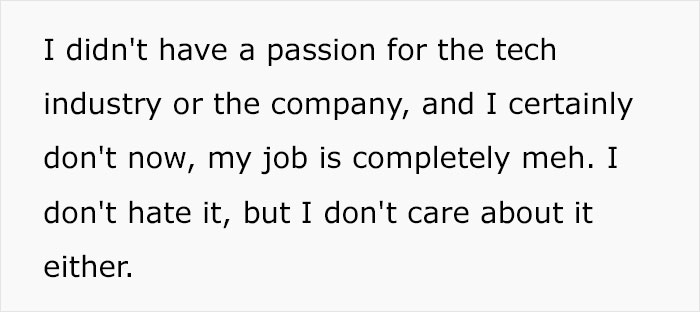
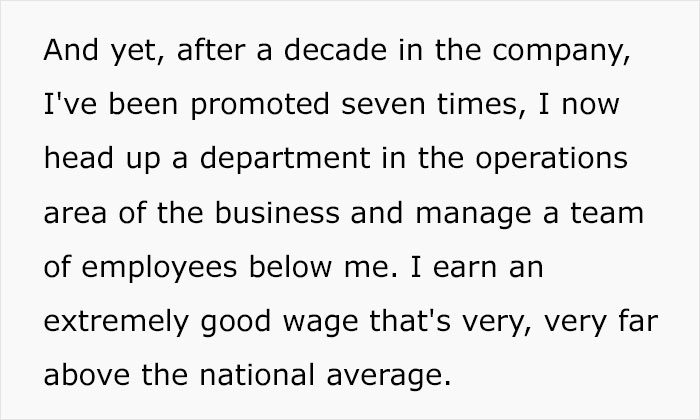
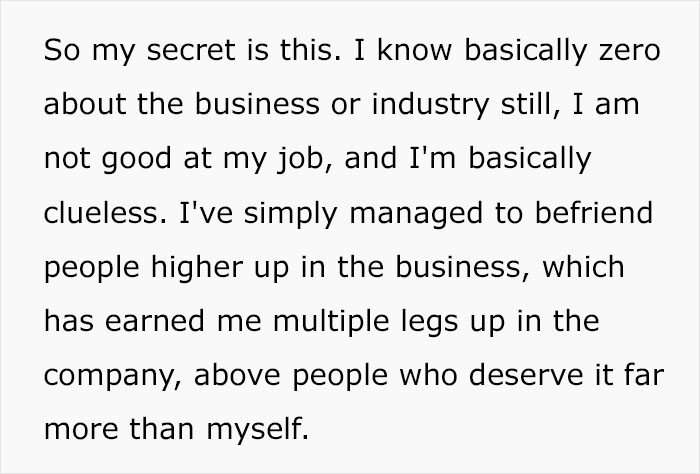
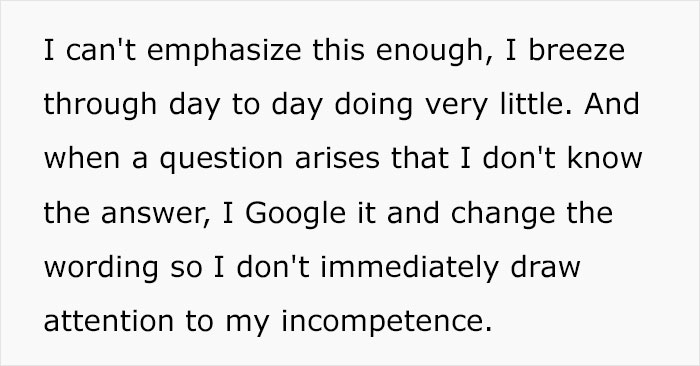

Image credits: Cytonn Photography (not the actual photo)
They note that day to day, they do the bare minimum, take long lunches and exaggerate small tasks
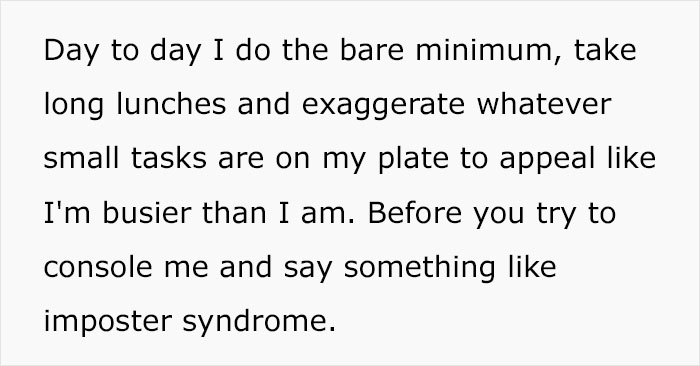
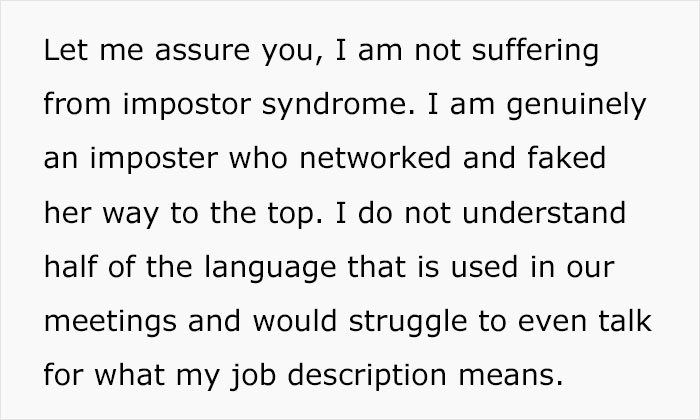
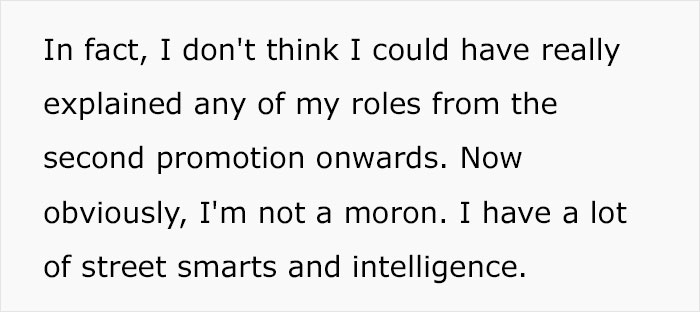
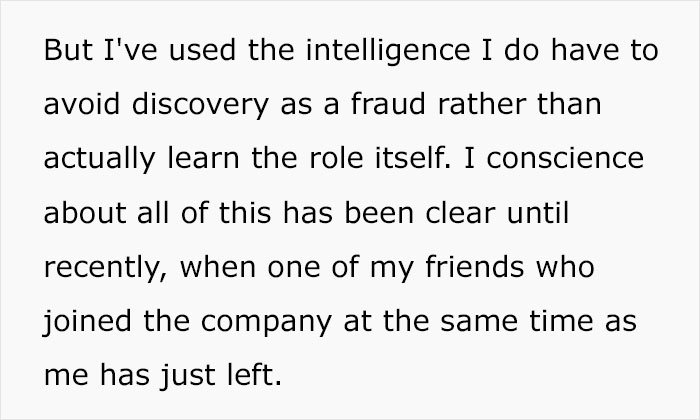
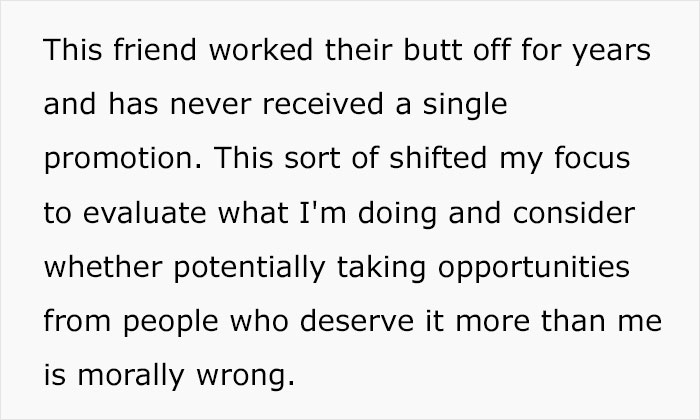

Image credits: everybodyhasasecret
But now, they’ve started wondering if they are taking opportunities from people who actually deserve it and whether it’s morally wrong
Recently, a person opened up that despite being clueless in the industry, by befriending people higher up in the business, they’ve faked their way to the top in the company. The person shared their secret on the podcast Everybody Has a Secret, which is hosted by Annabelle Lee and is all about spilling untold real-life stories. This story went viral on TikTok and received over 1.2M views.
So to begin with, the person emphasizes that about 10 years ago, they got a job in the tech industry at a company where their family friend worked. They opened up, saying that they have no relevant experience or qualifications for this position, have an irrelevant university degree and simply don’t care about this job. However, despite all that, after a decade in the company, they’ve been promoted 7 times.
They add that basically, by befriending people higher in the business and doing the bare minimum without even understanding the language that is used in meetings and their actual role, they have managed to make it to the top. However, after their friend who worked hard for years left the workplace, it shifted their focus and made them think that perhaps they are taking opportunities from people who deserve it and it’s morally wrong.
People online discussed that this story reminds them of every manager that they’ve had and that success is quite often about personality, charisma and who you know, rather than being productive or multitasking. “The old saying, it’s not what you know but who you know,” one person wrote. “Nah this is just playing the game well, kudos,” another added.

Image credits: Hunters Race (not the actual photo)
So let’s talk a little bit more about this phrase: ‘It’s who you know, not what you know’. Well, apparently it’s true – whether it’s good or bad news. Investopedia notes that who you know might be as important as what you know when it comes to gaining professional opportunities.
“What you know” is still important, because our ability to handle new events improves with the amount of knowledge we acquire in school or previous experiences. However, remember to keep “who you know” in mind. Consider a scenario in which a prestigious corporation is hiring for a new position and there are just two candidates left.
Although one candidate might have more relevant work experience and a stronger educational background, the other candidate might have been referred by a respected person within the organization. So it’s not easy to guess who might have a higher chance.
Now, let’s look a little bit at statistics regarding this matter. As per Apollo Technical, the likelihood of employment for referred employees is four times higher than that of non-referred ones. Additionally, a survey discovered that just 25% of workers found through job boards remain for more than two years, compared to over 45% of workers suggested by colleagues, who stay for more than four years.
So while it may look like people who are clueless in their positions despite being on top are taking opportunities from others, as it turns out – it’s really more important who you know, rather than what you know. But what do you think about this confession? Share your thoughts below!
People online discussed that most managers are like this





